Star Trek’s Biggest Traitors Vindicated?
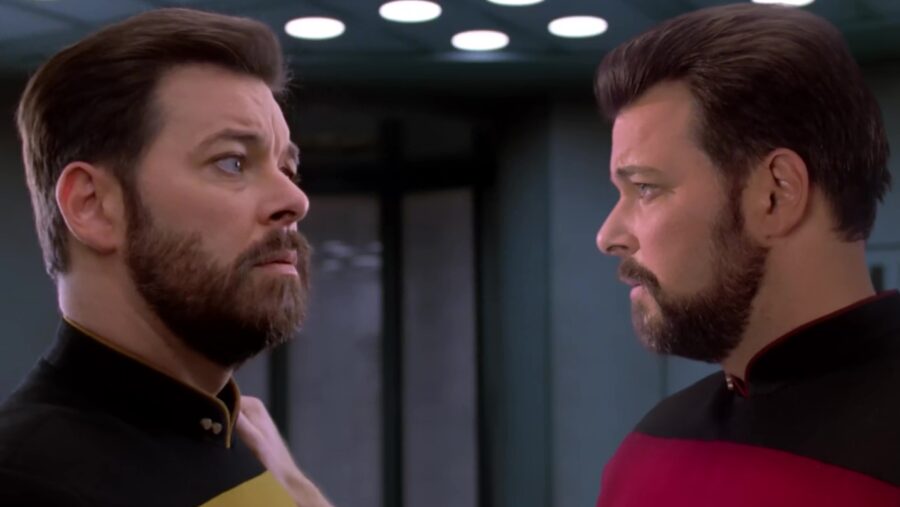
Star Trek is a franchise that has given us some memorable traitors over the years…officers who have violated Starfleet’s principles and are taken to task by heroes like Picard and Sisko. Across The Next Generation and Deep Space Nine, the biggest traitors are Captain Maxwell (who launched rogue attacks on Cardassians), Lieutenant Thomas Riker (who launched rogue attacks on Cardassians), and Admiral Leyton (who attempts a coup to effectively militarize Earth against the Dominion).
The surprising thing about each of these notorious Star Trek traitors is that we later find out just how justified their actions are.
Captain Maxwell
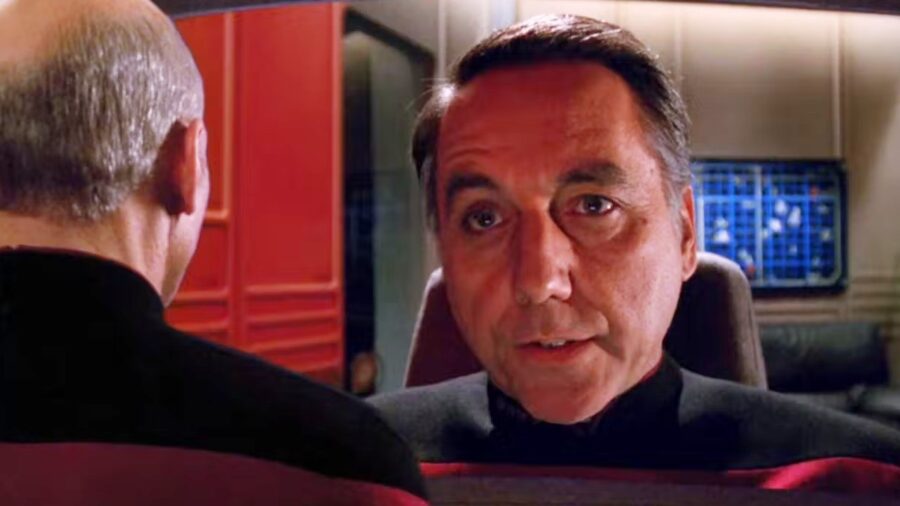
Captain Maxwell is introduced to us in the Star Trek: The Next Generation episode “The Wounded,” and he certainly doesn’t see himself as a traitor for using the USS Phoenix to launch unsanctioned attacks against Cardassian targets.
As he later explains to Picard, the Cardassians (whom Starfleet previously went to war against) were re-arming themselves, and the helpless “science station” that he had attacked was actually a military base.
Furthermore, he claims that the seemingly innocent Cardassian freighters in the area were secretly carrying weapons.
Being a good Star Trek captain, Picard ends up bringing Maxwell in and reads him the riot act about being a traitor to his Starfleet principles. However, even Picard later admits to a Cardassian leader that he only did this to preserve the peace and that Maxwell was apparently correct: not only was the science station in a strategically valuable area but the freighters were specifically shielded against Federation scanning technology.
It’s clear that these aggressive aliens really were re-arming, and about eight years later, the Cardassians joined the Dominion and went to war yet again against the Federation.
Thomas Riker
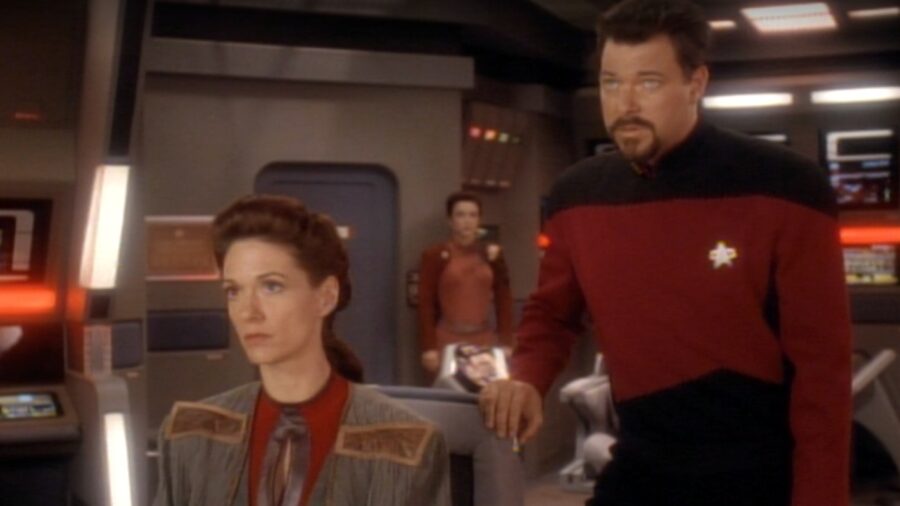
A similar scenario plays out with Thomas Riker, the transporter clone of William Riker. In the Star Trek: Deep Space Nine episode “Defiant,” he turns traitor, taking command of the titular starship on behalf of the Maquis so he can attack valuable Cardassian targets, including a hidden shipyard building a potentially massive fleet.
Riker gets caught and thrown in a Cardassian jail, but we later find out there really was a secret shipyard, one connected to a secret agreement with the Romulans (a major enemy of the Federation, no less) to attack the Founders.
Admiral Leyton
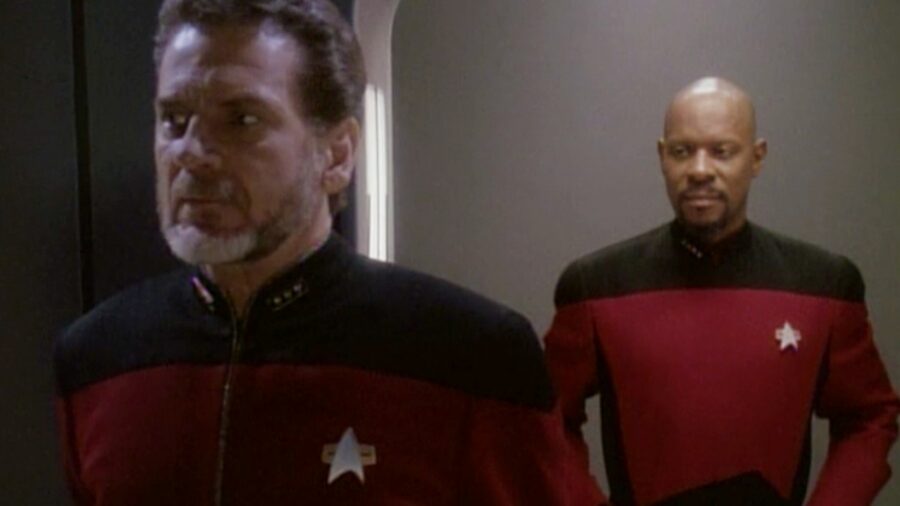
Of these so-called Star Trek traitors, Admiral Leyton is perhaps the hardest to defend: in the DS9 episodes “Homefront” and “Paradise Lost,” he initially gets Sisko onboard with militarizing Earth, instituting things like blood checks and even martial law after footage reveals a Changeling present at an attack on a diplomatic office.
Eventually, Sisko finds out that Leyton has been manipulating everyone into thinking there would be an upcoming Dominion invasion by doing things like manipulating the wormhole. After a tense standoff that nearly ends with two Starfleet ships destroying each other, Leyton resigns, ending his attempted coup.
The Dominion
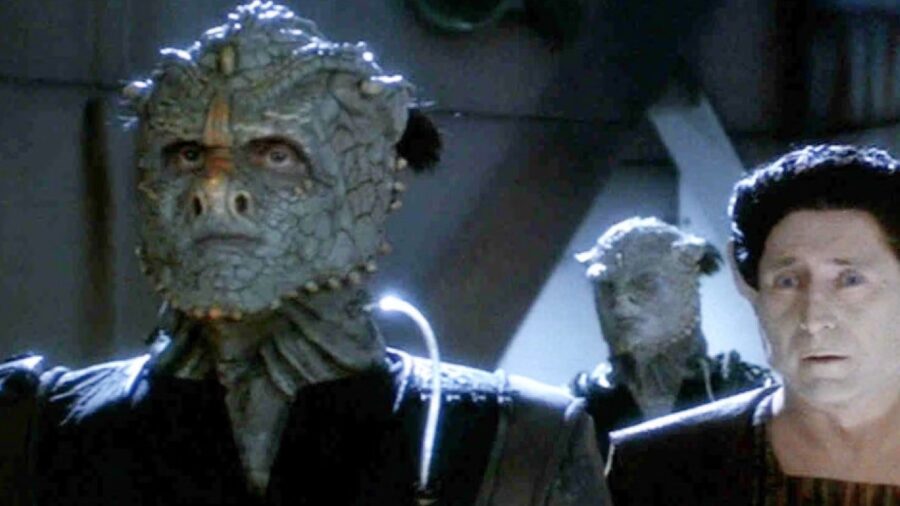
However, even Leyton is validated when you consider that the Dominion really did start sending a fleet through the wormhole and declared war against the Federation only one year later.
Plus, while things like martial law aren’t fun for people like Joseph Sisko, Leyton’s measures like checking to see which officers and their families were secretly Changelings was very smart.
Plus, we’re just throwing this out there: Leyton’s highly militarized Earth probably would have survived the later Breen attack with far fewer casualties.
Were They Really Traitors?
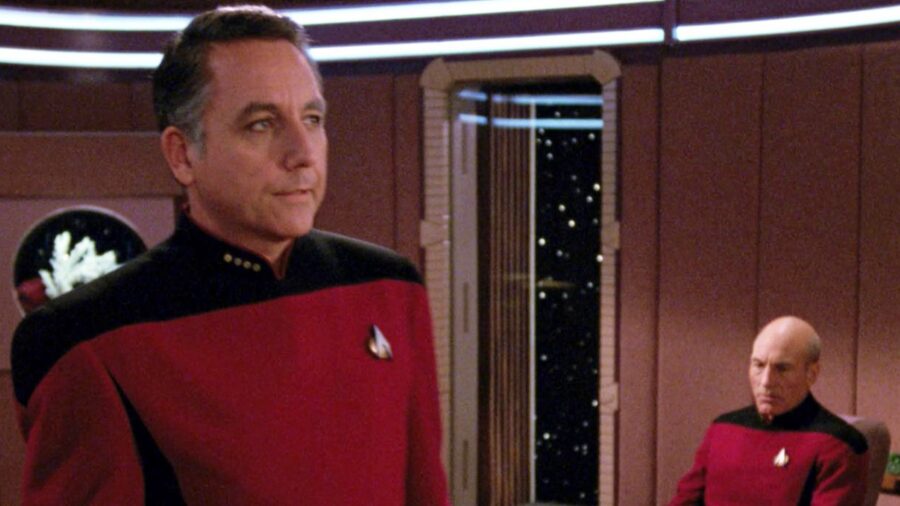
Long story not very short, Star Trek presents these three men as traitors to their uniform for violating Starfleet’s principles. However, not only were their traitorous actions arguably very justified, but Starfleet’s refusal to listen to them means this organization arguably puts these principles above saving lives.
Frankly, we’d rather have these traitors in charge than those who would sacrifice countless innocent people just so they could feel better about themselves.











